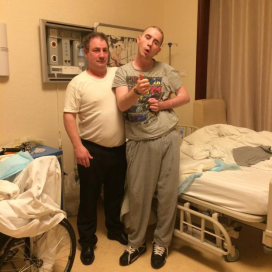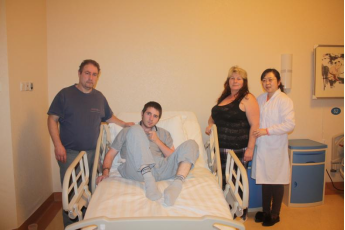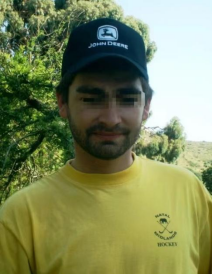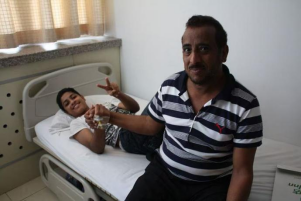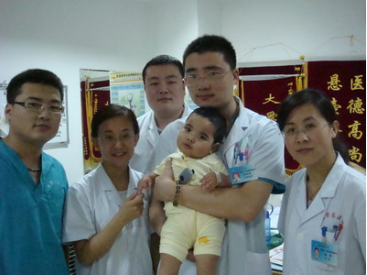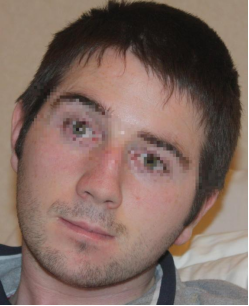
William, a 22 - year - old man hailing from Ireland, unfortunately sustained a traumatic brain injury following a car accident in 2011. On January 12, 2015, he underwent the first round of stem cell transplantation treatment, marking a significant step in his journey towards potential recovery.
•The patient has a tendency to attack others. One of our nurses was assaulted by him. His upper- limb muscle tension is extremely high, yet the muscle strength is weak. He can't stretch his left hand with his right hand.
•The muscle strength in his lower limbs is feeble, while the muscle tension is relatively elevated. As a result, he is incapable of standing or walking. Additionally, he lacks the ability to sense and control his urination and defecation, which poses significant challenges to his daily life and care- giving.
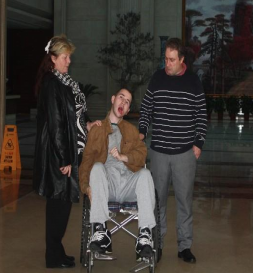
1. Mood and Upper Limb Improvement
• He was in a great mood.
• The muscle tension in his upper limbs had been significantly reduced.
• His muscle strength had improved remarkably, and he could stretch his left hand with his right hand on his own.
2. Lower Limb Progress
• His legs could stretch much better.
• He was able to stand independently for 2 minutes and walk for 1 minute without any external support.
3. Sensory Awareness Recovery
• He could now sense when he needed to urinate and would ask his father to change his diaper.
• His mother said it was the first time in the past three years that he had shown such awareness.
4. Return to Normal Activities
• Leaning on the bed, he started watching TV.
• This was the first time in the past three years, indicating a significant step in his recovery and a return to normal life activities.
Second Course of Stem Cell Treatment (April 2018)
Outcomes After the Second Course of Treatment
1. Mood and Upper Limb Improvement
• He was in a great mood.
• The muscle tension in his upper limbs had been significantly reduced.
• His muscle strength had improved remarkably, and he could stretch his left hand with his right hand on his own.
2. Lower Limb Progress
• His legs could stretch much better.
• He was able to stand independently for 2 minutes and walk for 1 minute without any external support.
3. Sensory Awareness Recovery
• He could now sense when he needed to urinate and would ask his father to change his diaper.
• His mother said it was the first time in the past three years that he had shown such awareness.
4. Return to Normal Activities
• Leaning on the bed, he started watching TV.
• This was the first time in the past three years, indicating a significant step in his recovery and a return to normal life activities.
The patient's recent progress is highly encouraging, foreshadowing a promising future. As time goes on, with consistent rehabilitation, the muscle strength in his upper and lower limbs will likely keep growing. He may soon be able to walk longer distances and perform more complex physical tasks independently. The regained ability to sense urination could be a starting point for full bladder and bowel control restoration. His new-found interest in watching TV also implies better cognitive engagement. Overall, he is on a positive trajectory towards a more normal and fulfilling life.
